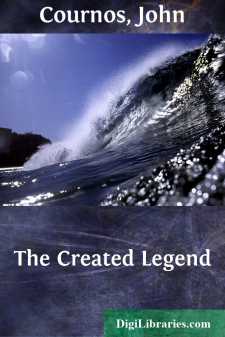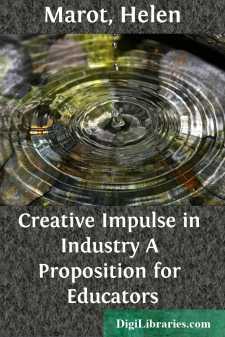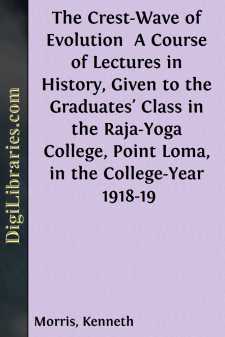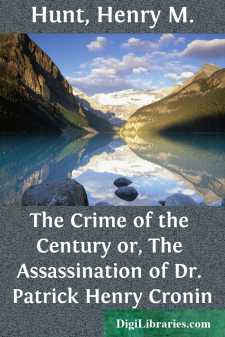Categories
- Antiques & Collectibles 13
- Architecture 36
- Art 48
- Bibles 22
- Biography & Autobiography 813
- Body, Mind & Spirit 142
- Business & Economics 28
- Children's Books 17
- Children's Fiction 14
- Computers 4
- Cooking 94
- Crafts & Hobbies 4
- Drama 346
- Education 46
- Family & Relationships 57
- Fiction 11829
- Games 19
- Gardening 17
- Health & Fitness 34
- History 1377
- House & Home 1
- Humor 147
- Juvenile Fiction 1873
- Juvenile Nonfiction 202
- Language Arts & Disciplines 88
- Law 16
- Literary Collections 686
- Literary Criticism 179
- Mathematics 13
- Medical 41
- Music 40
- Nature 179
- Non-Classifiable 1768
- Performing Arts 7
- Periodicals 1453
- Philosophy 64
- Photography 2
- Poetry 896
- Political Science 203
- Psychology 42
- Reference 154
- Religion 513
- Science 126
- Self-Help 84
- Social Science 81
- Sports & Recreation 34
- Study Aids 3
- Technology & Engineering 59
- Transportation 23
- Travel 463
- True Crime 29
Sort by:
by:
John Cournos
INTRODUCTION "For there is nothing either good or bad but thinking makes it so." SHAKESPEARE "To the impure all things are impure." NIETZSCHE In "The Little Demon" Sologub has shown us how the evil within us peering out through our imagination makes all the world seem evil to us. In "The Created Legend," feeling perhaps the need of reacting from his morose creation...
more...
by:
Boyd H. Bode
Intellectual advance occurs in two ways. At times increase of knowledge is organized about old conceptions, while these are expanded, elaborated and refined, but not seriously revised, much less abandoned. At other times, the increase of knowledge demands qualitative rather than quantitative change; alteration, not addition. Men's minds grow cold to their former intellectual concerns; ideas that...
more...
by:
Helen Marot
CHAPTER I PRODUCTION AND CREATIVE EFFORT As a human experience, the act of creating, the process of fabricating wealth, has been at different times as worthy of celebration as the possession of it. Before business enterprise and machine production discredited handwork, art for art's sake, work for the love of work, were conceivable human emotions. But to-day, a Cezanne who paints pictures and...
more...
CHAPTER I. INTRODUCTORY Among the recollections that are lifelong, I have one as vivid as ever after more than twenty-five years have elapsed; it is of an evening lecture—the first of a series—given at South Kensington to working men. The lecturer was Professor Huxley; his subject, the Common Lobster. All the apparatus used was a good-sized specimen of the creature itself, a penknife, and a...
more...
CHAPTER I. THE COMING OF THE SCHOOLMASTER The spirit of Indian Summer, enveloped in a delicate bluish haze, pervaded the Kentucky forest. Through the treetops sounded a sighing minor melody as now and then a leaf bade adieu to the companions of its summer revels, and sought its winter's rest on the ground beneath. On a fallen log a redbird sang with jubilant note. What cared he for the lament of...
more...
by:
May Sinclair
Three times during dinner he had asked himself what, after all, was he there for? And at the end of it, as she rose, her eyes held him for the first time that evening, as if they said that he would see. She had put him as far from her as possible, at the foot of her table between two of the four preposterous celebrities whom she had asked him, George Tanqueray, to meet. Everything, except her eyes, had...
more...
by:
Hilaire Belloc
INTRODUCTION Between those last precise accounts of military engagements which antiquity has left us in small number, and what may be called the modern history of war, there lies a period of many centuries—quite 1400 years—during which the details of an action and even the main features of a campaign are never given us by contemporary recorders. Through all that vast stretch of time we are...
more...
by:
Kenneth Morris
I. INTRODUCTORY These lectures will not be concerned with history as a record of wars and political changes; they will have little to tell of battles, murders, and sudden deaths. Instead, we shall try to discover and throw light on the cyclic movements of the Human Spirit. Back of all phenomena, or the outward show of things, there is always a noumenon in the unseen. Behind the phenomena of human...
more...
by:
Jules Claretie
CHAPTER I. "Where does Bernardet live?" "At the passage to the right—Yes, that house which you see with the grating and the garden behind it." The man to whom a passer-by had given this information hurried away in the direction pointed out; although gasping for breath, he tried to run, in order to more quickly reach the little house at the end of the passage of the Elysée des Beaux...
more...
by:
Henry M. Hunt
CHAPTER I. A CRIME THAT SHOCKED THE CIVILIZED WORLD—THE MYSTERIOUS STRANGER—A SUDDEN SUMMONS—THE INSTINCTS OF HUMANITY TRIUMPH OVER PERSONAL CONSIDERATIONS—LAST MOMENTS AT HOME—PARTING WORDS WITH A FRIEND—DR. CRONIN'S EVENTFUL LIFE—HOW HE WORKED HIS WAY UPWARD ON THE LADDER OF HONOR AND FAME. Little introduction to this volume is needed. It is the story—told in plain unvarnished...
more...











